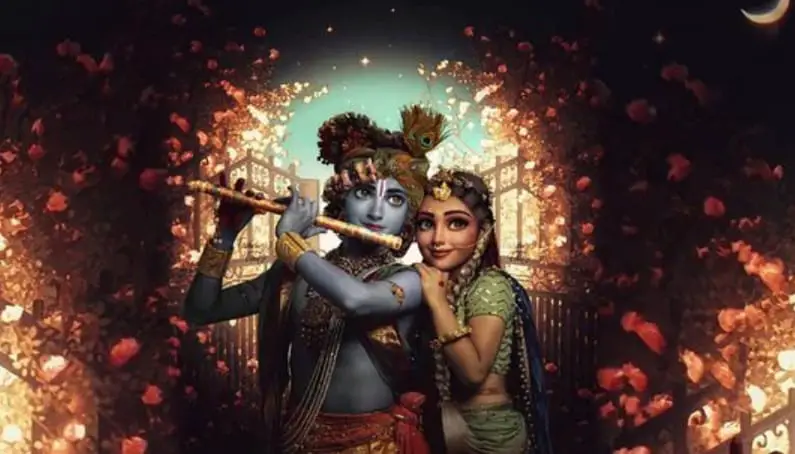Last Updated on September 5, 2024

Hair’s spiritual significance is unquestionable. And in Hinduism, long hair, compared to short hair, is valued uniquely. It’s associated with a person’s beauty, positive energy, and other forms of high power.
In fact, having long hair is a privilege — not everyone may have it.
Want to know more?
In this article, we’ll explore the significance of long hair and the Hindu beliefs about hair in general. The goal is to help you understand what long hair means to Hindus, the rules about long hair, should women and men grow their hair, and the deeper yogic significance behind it.
Why is long hair significant in Hinduism and its deeper yogic significance?
Hair (cleansed) is significant in Hinduism because it’s a powerful symbol of a person’s character. If a person has healthy hair, they are seen by society as someone with a pleasant disposition. They have great personalities and their lives are known to be in order.
You can say the same about people with long hair, too. Some members of the religion find men and women with long hair more attractive. And the longer a person’s hair is, the more pleasant they are to be with.
Long hair is also believed to draw cosmic energy, enhancing one’s spiritual connection.
This significance is pivotal for Hindus because one of their key thoughts is the belief in a soul or atman. And according to the teachings, hair is one of the connections to the soul.
Will bad things happen to the soul and spirit if a person cuts their hair?
According to history, nothing bad will happen to the soul and spirit if a person cuts their hair or refuses to grow their hair. But that person’s connection to their soul and spiritual side is blocked.
There’s also a possibility negative energies will enter a person’s life and mess with their energy. If they cut their natural human hair or insist in keeping hair short, they’re more prone to giving in to a disorganized existence and into their wild nature.
What are the rules to follow about long hair?
Yes, there are some rules to follow about long hair. Hinduism may not be a religion that imposes severe punishment where long hair is concerned. But because Hindus feel strongly about long hair, a few rules are worth noting.
Certain yogic exercises are believed to enhance the spiritual benefits of long hair, as it is thought to act as an antenna for cosmic energy, integrating into one’s spiritual practice.
The members of the religion encourage their fellows to adhere to these rules. The goal is to guide them and help them be a step closer to achieving dharma or a code that emphasizes the effects of morality and good conduct.
Here are more discussions about the significance of long hair:
New life means new hair – It’s mandatory for newborns to have their parents shave off their hair. According to tradition, their birth is an opportunity to begin a new life that should be cleansed of the past (and hair is a representation of it).
Standard sign of respect – Females (unmarried) need to cover their heads and avoid showing their long hair to people as a sign of respect. Men need to obey these, and prevent themselves from looking at women without a head covering.
Privilege for married women – Meanwhile, married women can enjoy their long hair without a head covering. Their husbands are free to see them this way, too.
What hair length is considered long in Hinduism to draw cosmic energy?
Generally, hair is thought of as long when its length is beyond a person’s shoulder. For centuries, it’s believed to be the case. Modern times, meanwhile, call for modern interpretation. And the idea of what constitutes long hair has changed. Cultural perceptions of hair fashion have evolved over time, influencing what is considered long hair.
This subject is also controversial because people have different opinions. That, and because of the genders involved — long hair on males is different from what is considered long hair on females.
Here are the discussions on what is considered a long hair length:
Long hair on a man – Men have long hair when their hair length goes past their ears.
Long hair on a woman – Some people say when the length of a woman’s hair is over her chin, that woman has long hair already. Meanwhile, others would argue a woman’s hair is only considered long when it’s past her shoulders and somewhere on her back.
Why should women grow their hair for spiritual growth?

In Hinduism, women aren’t obligated to grow their hair. It’s mandatory, however, that they should prevent others from seeing it — unless they’re married.
According to the teachings in Hindu mythology, if someone catches a glimpse of a woman’s hair, that person diminishes a woman’s power. This means, a woman becomes less powerful and has less energy to fulfill her duties.
Flowing hair is often depicted in Hindu iconography to symbolize qualities like kindness and wealth.
Here are the reasons women should grow their hair:
Long hair grants incomparable beauty and strength – Hair is a woman’s source of power. The longer their hair is, the more powerful and in control they are.
Long hair improves their ability to protect themselves – Compared to a short length, the ability of long hair to imbibe swiftly moving waves is greater. And with this more potent power and more energy comes the greater ability to protect themselves from negative energy.
Long hair blocks distressing vibrations – Especially if a woman’s long hair is thick and curls in an upward direction, people see it as a positive sign. Long hair, in this case, is blocking energies from undesirable locations under the earth or from the hell region.
Should men grow long hair?
Like women, men aren’t obligated to grow their hair. They’re also discouraged from letting their hair grow beyond their ears or chin because it makes them appear untidy. Long hair is also attached to images of criminal men and those who act unruly.
But while most of the higher members of Hinduism don’t like long hair on men, there is no explicit rule against this practice. Men have the freedom to grow their hair according to the length they want. Hinduism isn’t a one-sided religion, after all. Man’s hair is believed to draw energy to the brain, enhancing spiritual practices.
Here are the arguments about this:
Yes because men with long hair resemble deities – Men with long hair are seen to have qualities of a god and an authoritative nature. That’s why gurus, monks, yogis, and spiritual teachers have long hair.
No because men with long hair appear less masculine – Some are against men with long hair because it makes them appear less manly. And in a way, this makes them less respectable.
It depends on an individual – Hinduism is a religion that grants its members choices. So whether or not a man’s hair is up to him.
Curly hair, thick matted hair, or loose unbound hair?
In Hinduism, there are different paths that lead to a high form of spiritual enlightenment. A person who chooses to walk one path doesn’t mean he’s headed in a better direction compared to the person who chooses a different path.
This belief is also true when it comes to long hair — curly, thick, matted, or loose, unbound, unruly hair, it’s not too important. It is believed people’s hairstyles have nothing to do with their soul and spirit. However, maintaining long hair can help transform one’s hair into sensitive antennae, enhancing the ability to draw cosmic energy.
Here are more discussions on this subject:
All hairstyles are fine – The style of long hair has no influence over life events. It also has no bearing over a person’s character.
Quality matters – What matters is, long hair is healthy. If a person wants to feel respected or taken seriously, they’ll take care of their hair.
Hair of gods – Major deities like Krishna (curls), Shiva (thick), and Balarama (straight and silky) acknowledge this practice, too.
Related:Does Hair Hold Negative Energy? The Truth Revealed!
Conclusion
Hinduism may embrace a lot of religious ideas. But it stays true to the fundamental principle of allowing people to live their lives however they want. This freedom to be out there in the world is theirs, along with the idea they have to face the direct consequences of their choices.
So if a person wants to have long or short hair, that’s their prerogative. They’re free to have any hair length they want and do whatever they want with their hair.



